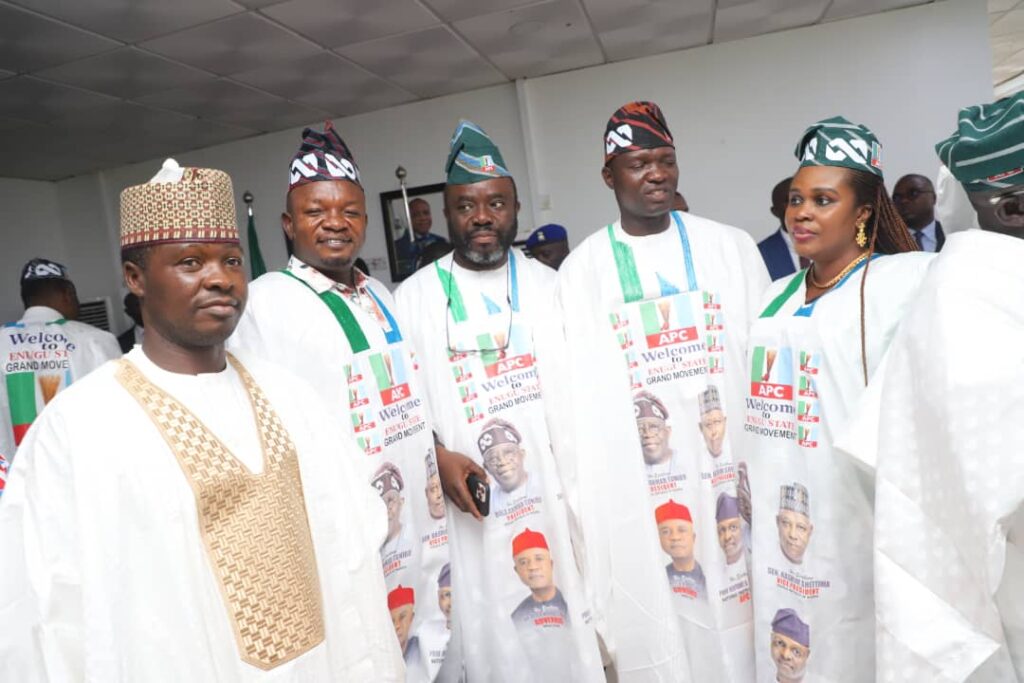By Marcus John, Abuja
The Senate and the House of Representatives have given reasons why it proposed that the Presidential and Governorship elections be conducted on November 2026, instead of the traditional February or March of the election year.
The proposal, contained in the draft amendments to the 2022 Electoral Act, stipulates that elections into the two offices should hold not later than 185 days before the expiration of the incumbent’s tenure, which ends on May 29, 2027.

The proposed amendments were unveiled on Monday during a one-day public hearing organized by the Joint Committee of the Senate and House of Representatives on Electoral Matters, featuring several far-reaching recommendations.
Many stakeholders who made submissions at the hearing called for the adoption of electronic voting and electronic transmission of election results to strengthen transparency and credibility in the process.
According to Section 4(7) of the proposed amendment:
> “Elections into the office of the President and Governor of a State shall be held not later than 185 days before the expiration of the term of office of the last holder of the office.”
A calculation of 185 days before May 29, 2027, places the elections squarely in November 2026, as the days between May 28, 2027, and December 1, 2026, total 180.
For federal and state legislators, Section 4(5) of the proposed amendment provides that:
> “Elections into the State Houses of Assembly and the National Assembly shall be held not later than 185 days before the date on which each of the Houses stands dissolved.”
To eliminate constitutional barriers to the proposed changes, the joint committee noted in the draft document that Elections into the State Houses of Assembly and the National Assembly shall be held not later than 185 days before the date on which each of the Houses stands dissolved.”
To eliminate constitutional barriers to the proposed changes, the joint committee noted in the draft document that:
> “Section 28 (now Section 27 [5–7]) was introduced due to amendments to Sections 76, 116, 132, and 178 of the Constitution, seeking to transfer the determination of election timelines from the Constitution to the Electoral Act.”
Explaining the rationale behind the early conduct of elections, the Chairman, House Committee on Electoral Matters, Hon. Adebayo Balogun, said the move is designed to allow sufficient time for the conclusion of election litigations before swearing-in ceremonies.
He added that Sections 285 and 139 of the 1999 Constitution would be amended accordingly.“To ensure that all election litigations are concluded before swearing-in, we are proposing that the 180 days for tribunal judgments be reduced to 90 days, the appellate court’s 90 days reduced to 60, and the Supreme Court’s timeline shortened accordingly—ensuring the entire process does not exceed 185 days, he stated.
Other key amendment proposals include early voting, as captured in Section (2) of the draft bill, which provides that:There shall be a date set aside for early voting not later than 14 days before the main election.”
Eligible categories for pre-poll voting include security personnel, electoral officials, accredited domestic observers, journalists, and ad-hoc staff of the Commission.
Further proposed amendments include mandatory electronic transmission of election results and non-compulsory use of Permanent Voter Cards (PVCs).
Section 60(5) of the draft amendment provides that “The Presiding Officer shall transmit results, including the total number of accredited voters, to the next level of collation both electronically and manually.”
It also criminalizes the distribution of unstamped ballot papers or result sheets, stipulating a penalty of one-year imprisonment, a N1million fine, or both for any erring presiding or collation officer.
All stakeholders who presented their views at the hearing—including the representative of the Independent National Electoral Commission (INEC), Professor Abdullahi Zuru—expressed support for the joint committee’s proposals.

Leave a Reply